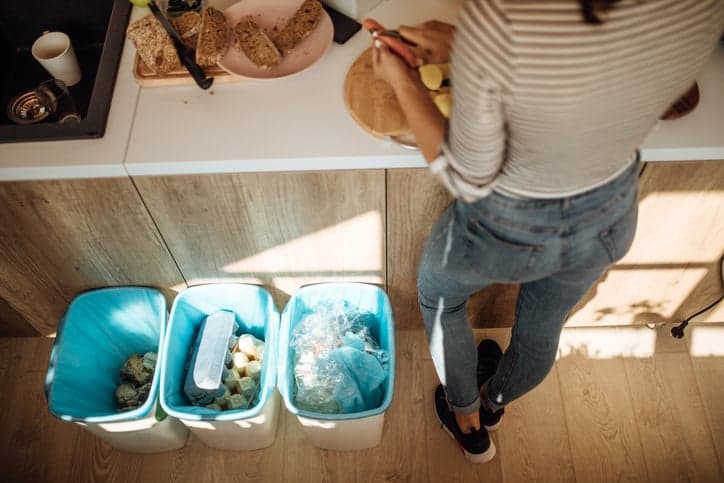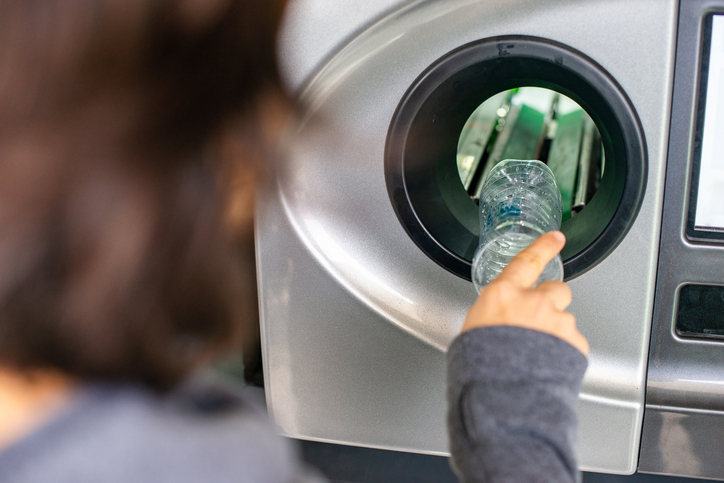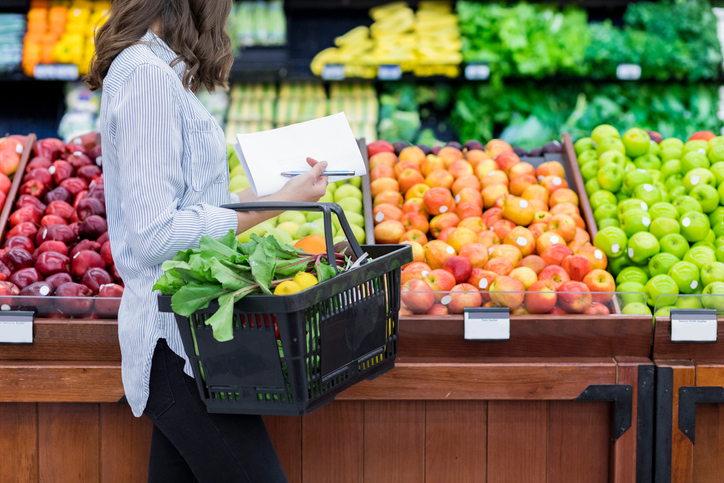How Nordic nations are tackling food waste – and how you can too
At a time when sustainability is at the forefront of our decision-making, the Nordic nations are making significant steps in reducing food and packaging waste. From smartphone apps and packaging-free stores, to ways of ensuring you don't buy too many ingredients, here we examine how Sweden and Denmark are taking action – and how you can cut your own waste in 2021.

One third of all food produced for human consumption globally is wasted each year, according to the Food and Agriculture Organization of the United Nations. But in Sweden, reducing food-related waste has been on the agenda since the mid-20th century.
Through careful planning and legislative ‘nudges’ in line with a specific set of goals, Sweden has been able to reduce its carbon emissions by around two million tonnes a year. The vast majority of packaging used in the country is either recycled or burned for energy, with organic waste used as fertilizer for farms.
With the rise of smartphones, popular food-sharing apps in Sweden offer a way to find cut-price treats from restaurants, cafes and grocery stores that would otherwise be thrown away. Users have the chance to save money and help reduce the amount of surplus food ending up in the bin.
Another popular way to ensure you only buy what you need and will use is meal kits. Delivered to your home weekly, meal kits from HelloFresh include the ingredients for a set number of meals, along with recipes that can be kept for later use.
Sweden has also long employed a forward-looking approach to plastic bottles and metal drinks cans. Its ‘pant’ bottle and can recycling system has been employed since the early 1980s – and 85% of cans and bottles are reused. The deposit on the bottles and cans – that you get back when you recycle them – is called pant and the process of recycling them in supermarket machines has even become a verb. So, if you live in Sweden but don't panta yet, perhaps 2021 is the time to start?
In Denmark, strategic planning has also made significant strides in eliminating food waste. One specific focus of sustainability policy is primary industries and agriculture.
Policy dictates that those vegetables, crops and animal products that are unsuitable for market are recycled for biogas, or used in other primary industry production. This has helped Denmark cut food waste to a level well under the global figure of one-third. Bottle and can recycling is at a record high, with 92% of all bottle and cans sold last year being recycled via return machines.
Photo: Getty Images
At an individual level, what else can you do in Sweden or Denmark to cut your waste? Fortunately, it’s not the herculean task that it might at appear to be at first – especially in the age of digital technology.
One popular strategy that Swedish and Danish communities use to eliminate food waste are food sharing programmes. These allow both companies and individuals to distribute excess food to others via social media communities or smartphone apps. These initiatives also have the benefit of providing low cost food to those who may struggle otherwise, solving two problems in one.
Another significant way in which Swedes and Danes are minimizing their food waste is through packaging-free shops, an increasing phenomenon in larger cities. At these stores, you’re encouraged to bring your own containers in which to take food home.
Photo: Getty Images
Not only are you buying only what you need, but packaging is almost entirely eliminated – a significant part of the waste problem associated with modern supermarkets.
With HelloFresh's meal kits, you can also also ensure you have exactly what you need when you come to cook. With only the right amount of food sent out each week, mostly sourced direct from local suppliers, food waste is minimised to a significant extent – and you can also save time and money.
Food packaging is another huge environmental issue, along with food waste. HelloFresh is also working on their packaging in order to minimize the waste created in logistics and distribution. Customers in both Sweden and Denmark will notice that their boxes come with a number of innovations.
The meal kits mix virgin and recycled fibres to survive the rigours of transport, while remaining easily foldable for collection. Inside the box, each of the bags containing ingredients is completely compostable – and therefore suitable for the organic waste collection in those countries. Ice bags for keeping fruit and vegetables fresh are recyclable, and insulating pads can also be composted.
With increasing focus on food waste across the Nordic nations, there are more opportunities than ever before for all of us to reduce our impact on the environment. From food sharing groups to smart apps, from packaging-free supermarkets to meal kits, food waste is a problem everyone can play a part in tackling.
Want to try HelloFresh? Get a discount on your first four boxes as a reader of The Local – in Sweden, click here and use the code ‘THELOCAL925’ or in Denmark, click here and use the code ‘THELOCAL725’.
This content was paid for by an advertiser and produced by The Local's Creative Studio.



Join the conversation in our comments section below. Share your own views and experience and if you have a question or suggestion for our journalists then email us at [email protected].
Please keep comments civil, constructive and on topic – and make sure to read our terms of use before getting involved.
Please log in here to leave a comment.